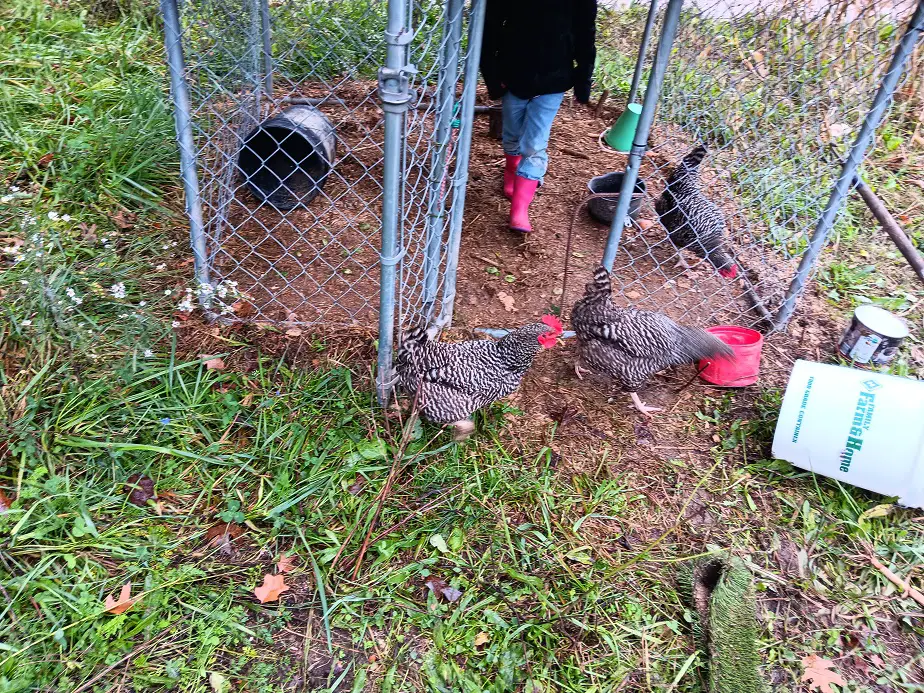Biochar has made a difference in our poultry operation. My daughters feed it to them every day.
Biochar can improve egg production, meat production, and overall health in chickens. It helps minimize coccidiosis outbreaks, helps control salmonella and E. coli, and lessens the likelihood of bumblefoot. It improves feed conversion, and immune function, and reduces flies.
Although the chickens have become my daughters’ project, I’m still responsible for oversight of their health and wellness.
Using Biochar in Poultry Feed
Biochar can be added in powder or chunk form to poultry feed. Chickens generally eat it up with relish until they’ve had their fill. Corn-sized pieces are my preferred option, but sometimes I grind it up smaller. If you have a powder or fine granular biochar, mix it with damp feed to avoid losses.
we often feed our birds whole, fermented corn. powdered biochar will adhere to the moist kernels, or I could add a bit of molasses to make it stick. I can also try and keep the particle size closer to that of a corn kernel and the chickens can just peck it off the ground.
When I do include biochar in their feed, I don’t want it to be more than about 2 percent by dry weight. I’ve done more, but that should really be limited to the treatment of things like a salmonella or coccidiosis outbreak. A lot of other experts limit it to as low as 1/2 percent. I like 2 percent.
The primary benefits of the biochar are only applied if the animals eat it, so you’ll need to figure out just how you want to go about that.
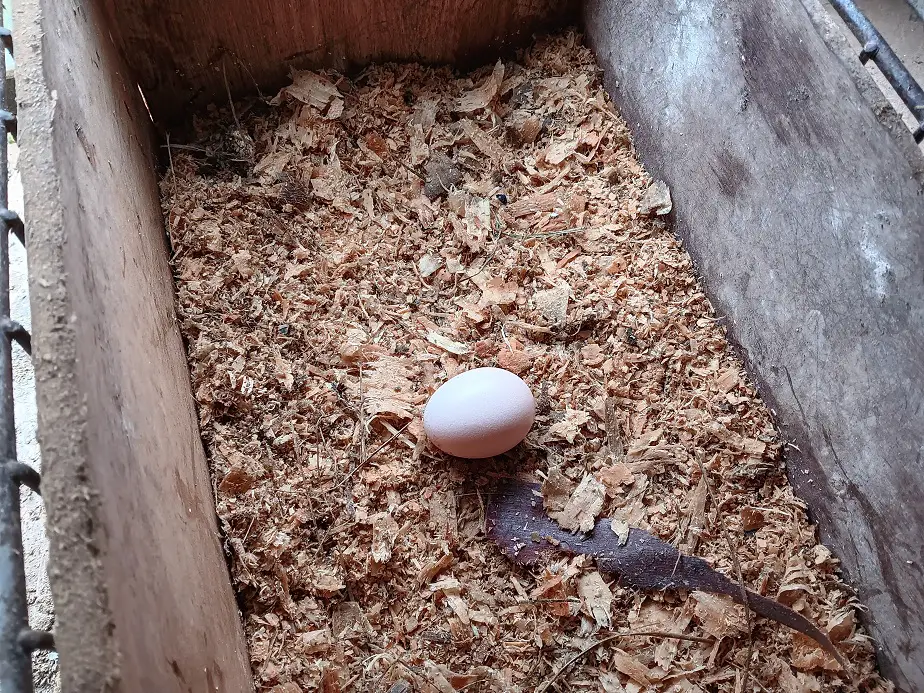
Increasing Egg Production with Biochar
Adding biochar at a rate of 1/2 to 2 percent is expected to raise egg production by 5 percent or more. It is also shown to increase shell strength by 5-10 percent, possibly due to its high calcium content.
Biochar, also called activated charcoal, has shown increased egg production in every study undertaken. It’s not usually a huge difference but it’s notable, especially for a larger operation. A 5 percent increase in egg production for the average small flock is like having another chicken without the extra trouble.
The reason for increased egg production is a bit unclear, but likely due to increased health in the bird. By helping clear up the common problematic bacteria that all poultry deal with 24/7, The chicken would have extra metabolic energy to focus on productivity.
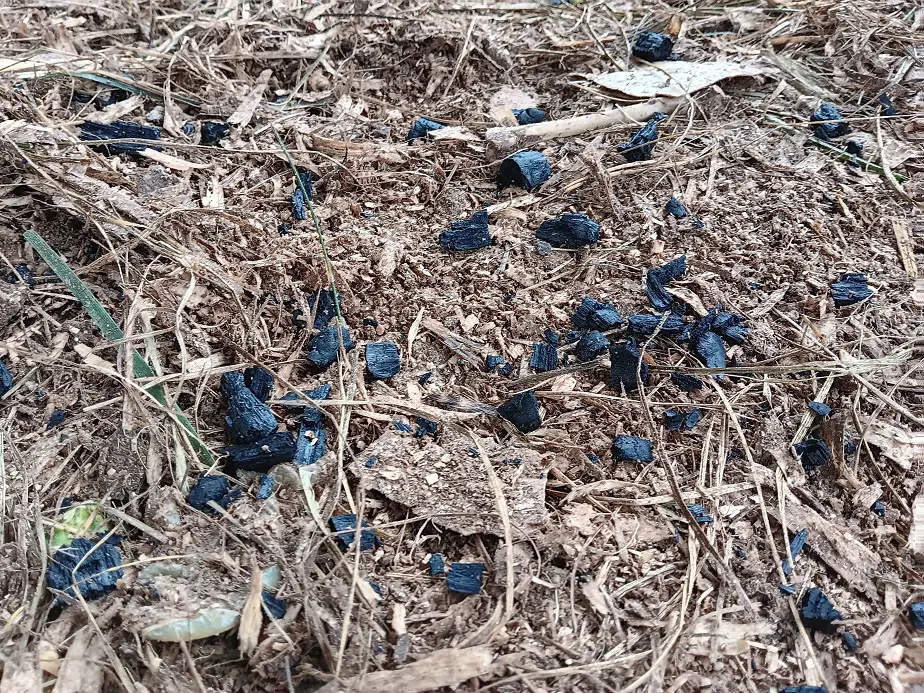
Biochar as a Mineral Supplement for Poultry
Biochar is useful as a feed supplement containing calcium, magnesium, zinc, and potassium. Because of its mineral composition, it’s useful when feeding low-mineral feeds such as fermented grains. The added minerals can strengthen eggshells, boost egg production, and increase the growth of chickens.
I use ground biochar as a supplement in our winter poultry feed. We don’t buy layer feed from November to March, and instead opt for fermented grains. Biochar contains essential limiting minerals like Calcium, Magnesium, Zinc, Potassium, and Chloride.
While it can pass through the digestive tract, some it its compounds are readily dissolved and absorbed. This is especially so of its Zinc, which is beneficial to the immune system.
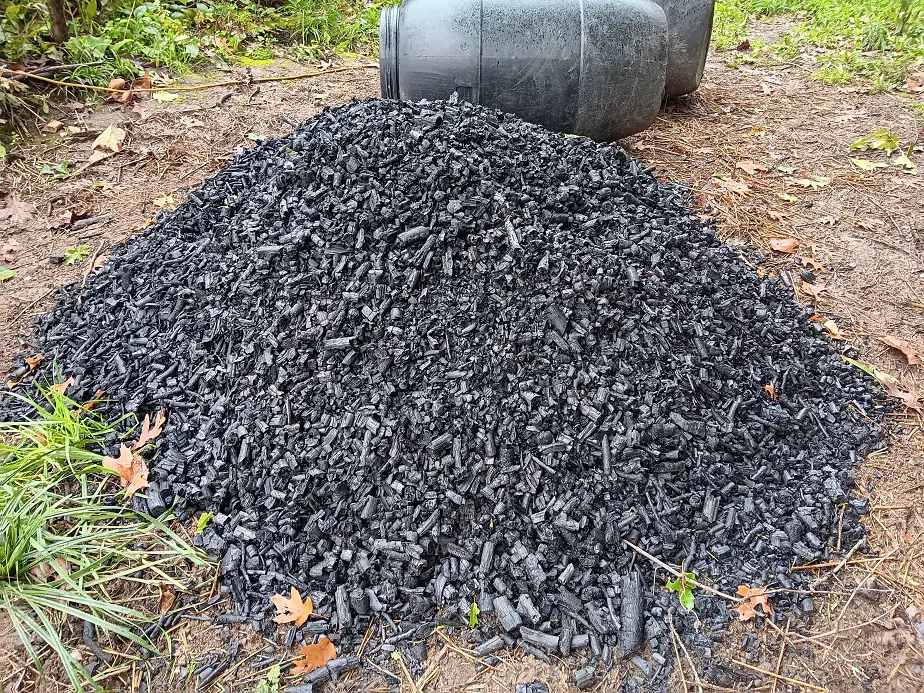
Increasing Poultry Meat Production With Biochar
Biochar as a feed additive improves the growth rate and feed conversion ratio of broiler chickens such as the common Cornish Cross. It does this primarily by improving gut health, gut function, and nutrient absorption in the lower intestines.
Biochar significantly reduces the negative bacteria in the gut of poultry and allows for an increase in the beneficial bacteria. It also works to remove pesticide and herbicide residue in the feed. One particular herbicide that is effectively reduced is glyphosate, aka, roundup.
Residual traces of Glyphosate cause severe effects on gut flora, reducing the species of beneficial bacteria by up to 50 percent. This loss of gut flora species causes a rise in negative gut bacteria and a decrease in nutrient absorption. The result is restricted growth, lesser immune function, and greater feed consumption.
Numerous studies have shown 15 percent or more additional growth by adding a small amount of biochar to chicken feed in an otherwise standard commercial poultry operation.
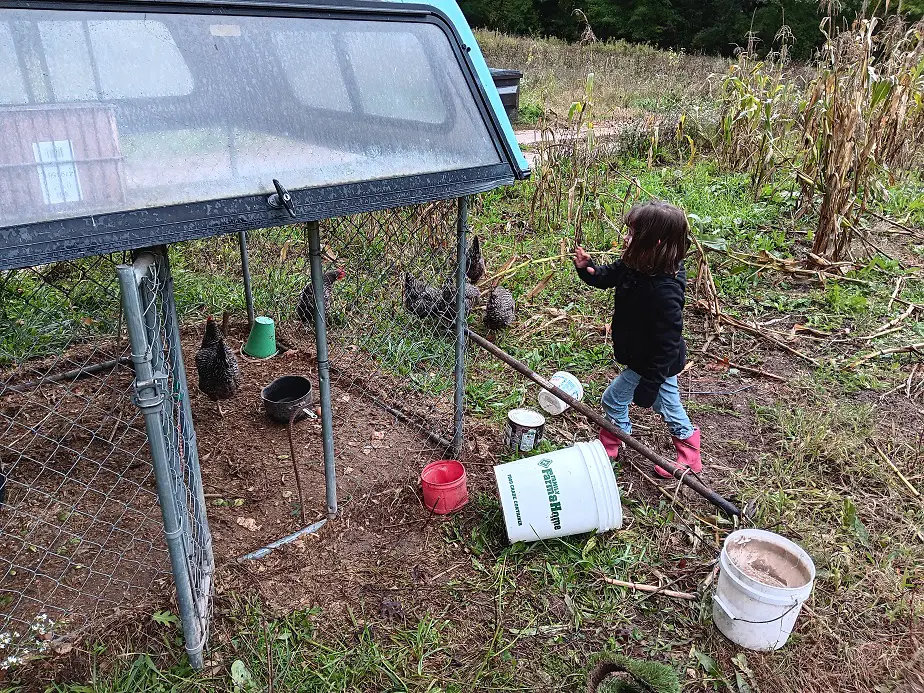
Using Biochar in Chicken Coops and Runs
Biochar used as a ground cover, bedding, or nesting material improves the air quality of chickens’ living space. It captures escaping ammonia, preventing them from causing common breathing conditions. It also absorbs manure, reduces flies, and keeps the coop or chicken barn drier.
Biochar is highly absorptive. Its able to absorb unusually high amounts of NItrogen compounds like urea and ammonium nitrate, both of which are quite prevalent in chicken areas. Urea in the manure converts to an ammonium nitrate gas. The ammonium gas severely impacts air quality.
Whether you have a soil or concrete floor with bedding material, mixing in biochar will work, to absorb the nitrogen compounds and bind them up securely. Then it can be removed and used as an organic fertilizer.
Because it absorbs so much, it keeps the ground drier. That’s mainly how it reduces flies. Biochar also has some anti- Salmonella and anti-E. coli properties when spread on the ground.
Its slight anti-microbial properties combined with its absorption capacity help to mitigate the chances of bumblefoot and foot infections.
Treating Poultry Manure with Biochar
Poultry manure treated with biochar holds up to 50 percent more fertility after aging. The nutrients absorbed by biochar add significant value to stored manure. Poultry manure can easily lose 90 percent of its nitrogen content in a week if stored in poor conditions.
By adding a thin cover onto a manure pile or lagoon, or layering it in as the pile builds up, you can greatly reduce the nutrient loss and increase the value of the waste materials at hand.
I use biochar to improve my manures and compost. It’s an important and simple way to reduce the cash inputs I need to grow crops. Poultry manure that has been treated with biochar is indeed an amazing, lasting fertilizer product for our crops.
for the health and immunity benefits alone, I will never stop using biochar for our poultry. It’s way too valuable not to use, and it can be bought relatively cheaply. I add it to feed at a rate of 2 percent, by weight. I don’t add it every day, but I do try to keep it up regularly, a few times a week.
Biochar is a cleaner, purer version of charcoal. It’s basically just activated charcoal, the same stuff sold in health stores. It has a whole host of benefits for every sort of livestock I know about.
Related Articles:

